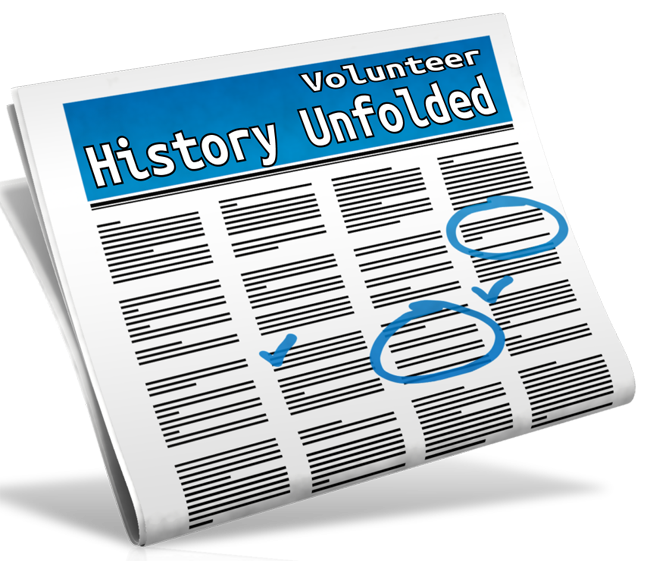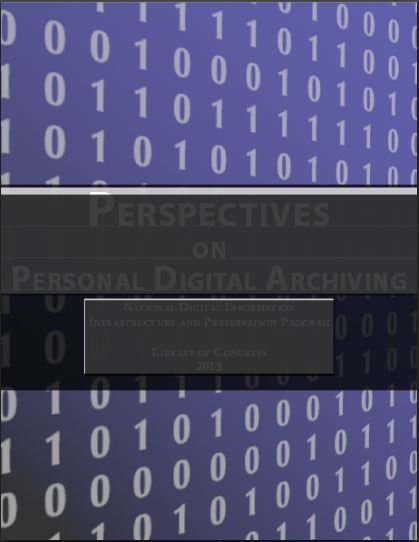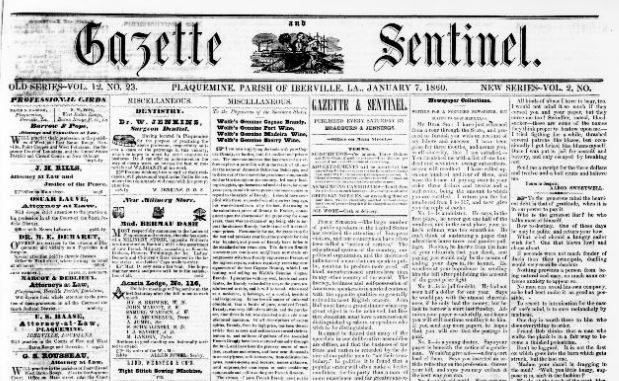by Lisa Cooke | Nov 4, 2013 | 01 What's New, Newspaper
Does your local library, historical or genealogical society have a newspaper collection to share? Let the NEH help!
The National Endowment for the Humanities (NEH) is accepting proposals from institutions hoping to participate in the the National Digital Newspaper Program (NDNP). This program creates “a national, digital resource of historically significant newspapers published between 1836 and 1922 in U.S. states and territories.” Guidelines for 2014 are now available and proposals must be submitted by January 15, 2014.
According to the press release, “Each award supports a 2-year project to digitally convert 100,000 newspaper pages from that state’s collections, primarily from microfilm negative. Titles may be printed in Danish, English, French, German, Hungarian, Italian, Norwegian, Portuguese, Spanish or Swedish. The program provides access to this resource through the Chronicling America web site hosted by the Library of Congress. The site currently includes more than 6.6 million newspaper pages in English, French, German, and Spanish, from more than 1100 titles digitized by institutions in 30 states.”
For more program information, please visit the NEH’s program page or this page for technical information from the Library of Congress. Click here to see what institutions have participated.
I can’t say enough good things about this and other initiatives to support more digitized newspapers online. My book How to Find Your Family History in Newspapers will provide you with more about using these awesome resources to flesh out your family’s story, a tried and true research process, and loads of resources. Check it out in paperback or pdf e-book!
by Lisa Cooke | Sep 28, 2013 | 01 What's New, Book Club, Inspiration, Research Skills
The Library of Congress has a new quick video tutorial to help us find things in their enormous collections, both offline and online.

Flickr Creative Commons image by Paull Young.
“How to Find Stuff at the Largest Library in the World” is a 5-minute introductory video. It shows how to use subject headings, research databases and other helpful tools to find books, photos, sheet music, manuscripts and more at the Library of Congress or other locations.
This video makes the Library of Congress seem much less intimidating. And we get some tempting glimpses of the inside of the Library. The tips they mention are helpful for navigating any research library though, so check it out!
by Lisa Cooke | Apr 6, 2013 | 01 What's New, Book Club, Inspiration, Organization, Photographs, Technology
Digital archiving is a hot topic for genealogists these days. Digitizing our family documents, photographs and other artifacts is one more way to help us preserve and share our heritage. Well, the Library of Congress wants to help us out! It has published a free e-book, Perspectives on Personal Digital Archiving.
 Scroll through the table of contents and you’ll see immediately why this book is valuable to family historians. There are lots of how-tos on preserving photos and other images: what file formats to use, cloud storage, adding digital captions, image resolution and more. There are sections on how everyday people are preserving their own digital archives. There’s even a great chapter on making sure your digital files live on after you pass away.
Scroll through the table of contents and you’ll see immediately why this book is valuable to family historians. There are lots of how-tos on preserving photos and other images: what file formats to use, cloud storage, adding digital captions, image resolution and more. There are sections on how everyday people are preserving their own digital archives. There’s even a great chapter on making sure your digital files live on after you pass away.
There’s an entire chapter on digitizing for the family historian. It gets to the heart of a genealogist’s file organization and storage needs: “Digital genealogy could result in a heap of text files (such as GEDCom files), image scans (most sites enable you to save an image in either JPEG, TIFF or PDF formats), audio files and video files. It’s best to follow the Library of Congress’s personal archiving advice, which is basically to:
1) organize everything within one collection folder
2) backup your collection onto several storage media in several different places
3) migrate your collection every five years or so to new storage media.
Don’t trust that a third-party genealogy service will always remain in business and keep your stuff safe forever. You should have your own copy handy and another copy backed up somewhere else.”
Great advice! Check out the entire book for yourself. And thanks to GenealogyBlog authors Leland and Patty Meitzler who blogged about this new e-book on their site.
by Lisa Cooke | Apr 5, 2013 | 01 What's New, Newspaper, Research Skills, Technology
Many of us know the fabulous Chronicling America newspaper site. Hosted by the Library of Congress, it catalogs all known U.S. newspapers and provides free access to more than six million digital newspaper pages. Well, this site keeps getting better. Content continues to grow and expand into other languages. And–something I personally love–the site will be easier to use on my iPad and iPhone!

Gazette Sentinel, Plaquemine, LA, Jan 20, 1860, Image from Chronicling America
First, let’s look at growing content: 130 new titles and 800,000 pages are new on the site. New titles include French and Spanish newspapers, like the French-English bilingual paper shown here.
‘We as genealogists can read as it were over our ancestors’ shoulders.’
Historical newspapers give readers a front-page view of American history. Recent additions to the collection echo popular feelings about presidential politics, slavery and westward expansion. We as genealogists can read as it were over our ancestors’ shoulders. Even if we don’t find them mentioned there specifically, we can learn a lot about their lives from newspapers of their day.
As I mentioned, Chronicling America now works better on mobile web devices. Specifically mentioned in a recent press release are “the ability to enlarge a portion of a newspaper page in a tablet or mobile phone device by using a pinch-to-zoom gesture. Also, a thumbnail navigator that appears on every page facilitates panning and zooming the image.” That’s a big improvement for users who have been frustrated at trying to use the site on the small screen!
Want to learn more about newspaper research for family historians–especially how to find newspapers online? Check out my book, How to Find Your Family History in Newspapers, available in paperback and as an e-book.








